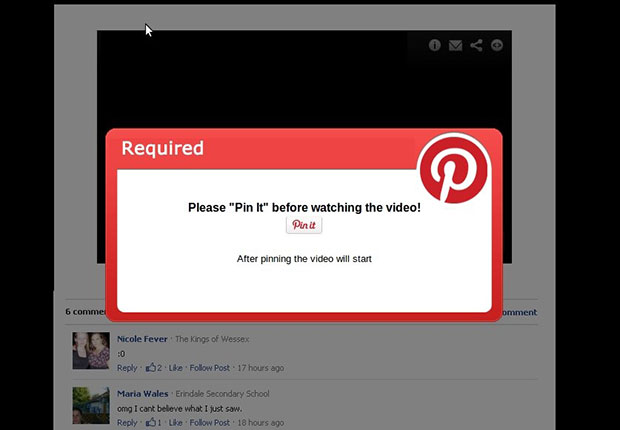Cyber-criminals keep spreading the same social media scams over and over. Still, they manage to get bigger “paychecks” because of people’s simplicity. Sex tapes, videos with celebrities caught on the wrong foot, free vouchers and the opportunity to see Facebook stalkers – these baits are too tempting a trigger for users’ instinctive curiosity.

Antivirus provider Bitdefender outlines the main tricks to help you spot social media scams in less than a second. First, remember that, if something looks too good to be true, it probably is. But let’s start with the most popular baits circulating on social networks such as Facebook, Pinterest and Twitter.
Guess who viewed your profile
You should recognize this scam in less than a second because there is no such thing on Facebook. The social network has no feature that allows you to see who has been stalking you, nor to give you the complete list of exes who love to take a peek at your timeline.
Leaked sex videos
From one month to another, scammers also resurrect fake videos with steamy or horrifying scenes allegedly leaked on the Internet. They actually lead to fraudulent or malicious web sites that trick users into installing banking Trojans or give away their credentials to command-and-control servers. They also spread from one account to another through techniques such as likejacking, which posts updates on behalf of users. Examples of leaked sex tapes include dads who caught daughters on webcam, and brothers raping their sisters.
Celebrity Tapes
Celebrity videos are also popular baits used by cyber-criminals to earn money via social networks. Rihanna, Miley Cyrus, Kim Kardashian, Megan Fox, Justin Bieber, Selena Gomez and Chris Brown are frequently used to tempt users with such scandalous or sexually-related tapes. The best tip is to avoid clicking on such links – they are all empty promises.
Free Vouchers and Gift Cards
Gadget giveaways, free vouchers, gift cards and free plane tickets are a current bait for social media users. To convince them to click on fraudulent or phishing web sites, cyber-criminals take advantage of the reputation of big companies. Don’t give away your personal data, and avoid clicking on dubious websites offering free goodies.

Social media scams also promise features the platforms don’t have. For instance, a scam that promises a red or green Facebook timeline is still making rounds on the social network, as many users would like to change the platform’s design. Users should also be cautious when seeing pop-ups and links with browser extensions/add-ons, Youtube or FlashPlayer updates. For maximum protection, install and keep their antivirus solution updated. On Facebook, users can also take advantage of Safego, a free application that keeps them safe from malware, phishing, fraud and dangerous privacy exposure.
